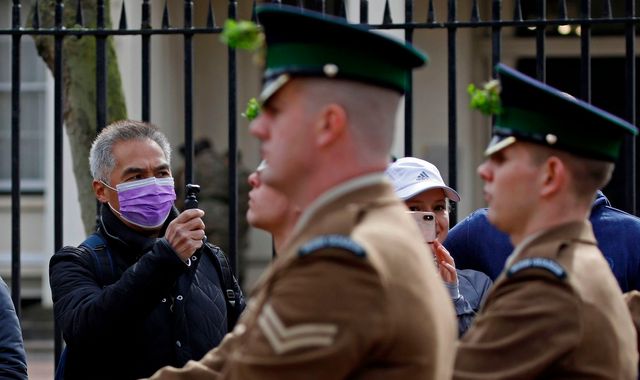Coronavirus: What do mitigation and suppression mean?
Written by News on 17/03/2020
Monday’s announcement by the prime minister that the public should adopt measures to reduce person-to-person contact marks a significant shift in the government’s position.


It appears to be in response to modelling by the COVID-19 team at London’s Imperial College that indicates as many as 250,000 people could die if the strategy of mitigation is not replaced by one of suppression.
The new government advice appears to be somewhere between the two. But what exactly do they mean?
Mitigation
The aim of mitigation is not to stop the spread of the disease – there is an acceptance that many people will become ill. Measures include increasing hygiene awareness, some social distancing, home-working where possible, self-isolating if a person displays symptoms and if a positive diagnosis is confirmed, targeted testing of contacts.
Mitigation is designed to slow the rate of infection throughout a population – to spread the number of cases over a longer period of time, rather than a sharp peak in infections, to better allow emergency services to cope with the most acute cases. It also designed to buy time to generate more resources, for the development of more effective treatments and in the longer term – vaccines.
Suppression
The aim of suppression is, as far as is possible, to stop the epidemic in its tracks, at least in the short term. It is tacit acceptance that the softer approach of mitigation is not working and more draconian measures are required. It means severe restrictions on freedom of movement, the closing of social venues such as pubs, clubs and theatres, a far more rigorous testing regime, increasing self-isolation times, and in extreme circumstances, using security services to enforce the conditions of suppression.
The downside is that the peak rate of infection will not be flattened, but just shifted to a later date. The hope is that this would give emergency services the breathing space to prepare for a large-scale increase in severe cases once the conditions of suppression are eased.
:: Listen to the Backstage podcast on Apple Podcasts, Google Podcasts, Spotify, Spreaker
Economic impact
Whether mitigation or suppression, the consequences can be severe. In economic terms this can range from stock market volatility, the collapse of major companies, for example in the aviation industry as travel restrictions bite, the permanent closure of entertainment venues, and at a personal level, the loss of income and jobs, both in the short and long term.
The government has said to will introduce measures to help industry and individuals, but the level and extent required of such support has yet to be calculated. The current position of advising businesses to close rather than enforcing a shutdown could be viewed as letting insurance companies and government off the financial hook.
Ethics
In dealing with such a unique crisis democratic governments potentially face a major dilemma – balancing the rights of an individual against the greater good of the wider population. Using the power of arrest for example to restrict people’s movements or enforce the separation of families is something no government elected by the popular vote is keen to be seen doing. But it is a step that France and Italy, for example, have decided they are willing to risk.
The apparently relatively successful, but extreme measures introduced in China to combat COVID-19 were possible because of an all-powerful, central, authoritarian regime and a wide – though shrinking – acceptance that the greater good outweighs the rights of the individual.
The British government has undoubtedly moved its position towards suppression. However with the measures announced advisory rather than compulsory and with schools and colleges still open, is still engaged in a juggling act between the science, the ethics and the economics of dealing with COVID-19.
(c) Sky News 2020: Coronavirus: What do mitigation and suppression mean?







